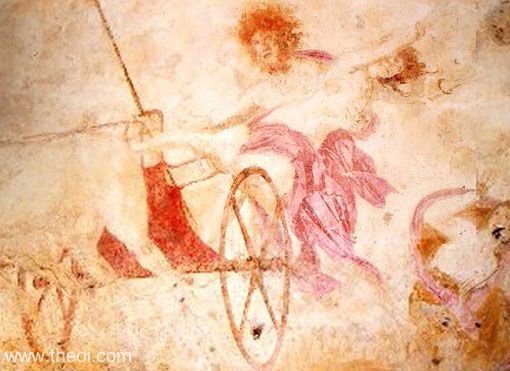Ancient Greece's #MeToo Poster Girl
Bernini's "Rape of Proserpina" (Proserpina is the Roman name for Persephone)
The continuing explosion of sexual abuse and harassment revelations against powerful men is staggering, and has me thinking about the depth and perniciousness of our culture’s patriarchal roots. After naively believing that feminism’s various waves had fundamentally changed the ways which powerful men relate to women, it now seems those old behaviors were merely pushed underground, further into the shadows. Tracing these patterns back through Western culture, I arrive at the Greek Goddess Persephone, the West’s first poster girl for the #MeToo movement.
The myth of Persephone is one of the dominant Western myths, and archetypes, about female development and heterosexual, cisgender relationships (In Jungian parlance, “archetypes” are symbolic representations of a commonly held experience). Abducted and forced to marry an older, more powerful male, her story speaks to how girls are often initiated into womanhood in Western culture, while Hades symbolizes the toxic masculinity our culture seems to encourage in men. In this myth, we see how innocence and powerlessness in a young woman are preyed upon, and her freedom to develop her strength and power is violated. The full myth, which I summarize below, is more fully fleshed out here, and was made into a horrifying cartoon for children by Walt Disney in 1934 here.
In the myth, Persephone is a teenage girl, innocent and unprotected, out picking flowers in a meadow. Hades, the God of the underworld, roars up from below on his chariot, taking her into the Underworld where he rapes her and holds her hostage as his “wife.”
Proserpina's tears
Her mother, Demeter, the goddess of fertility and harvest, grieves and rages so deeply and profoundly for her lost daughter, that the earth goes into a state of permanent winter, threatening the survival of humanity, and thus of the Gods and Goddesses.
While Persephone begs Hades to free her to return to her mother, and the earth above, Hades refuses, feeding her pomegranate, the fruit of the underworld. Unfortunately for Persephone, eating only a few pomegranate kernels has destined her to forever be linked to the underworld.
The Rape of Persephone, Greek fresco from Macedonian tomb C4th B.C
The compromise reached by Demeter, Zeus, Persephone and Hades, is for Persephone to spend half of her days above ground, bringing Spring and Summer to the earth, and half of her days underground, bringing Fall and Winter.
This myth, and its perniciousness, raise many questions and thoughts (too many to explore here )such as: How do some men learn that its ok to exploit and violate women? How can we change this? How do some girls become women who do not listen to their own intuition, and who do not know their own power? How can we raise our sons and daughters differently, so that they do not perpetuate these ancient archetypes? How do we transform a culture which rewards those who endlessly take what they desire (from others, from the earth) with no regard for harm caused, winning at all costs, and the exploitation of others for personal gain? What are your thoughts?
In Part 2 of this blog, I will share some of the ideas I’ve come across to address this cultural pathology. In the meantime, I am grateful to the brave women coming forward today, and to all of those who seek to make our culture and world a more healthy, safe and equitable place for all.



